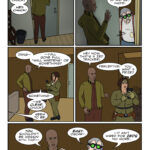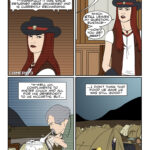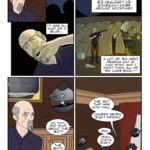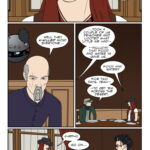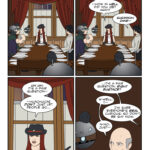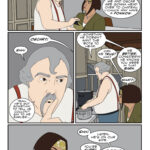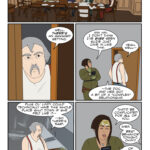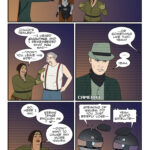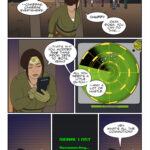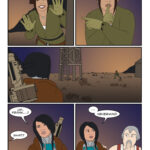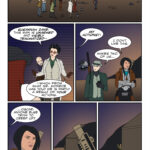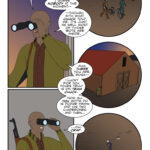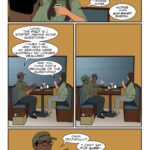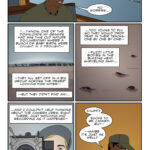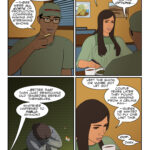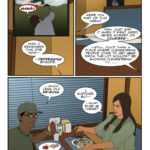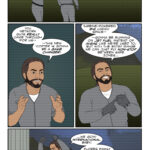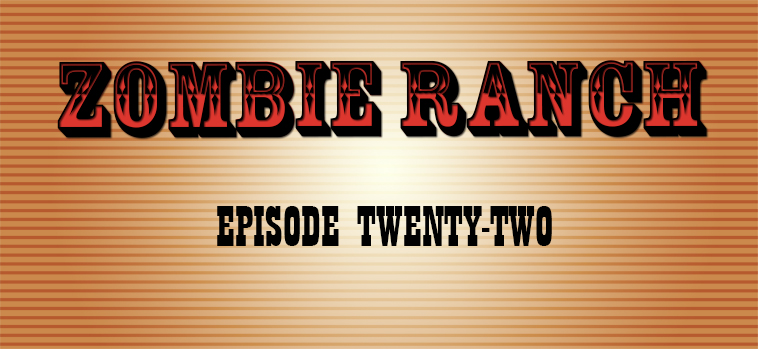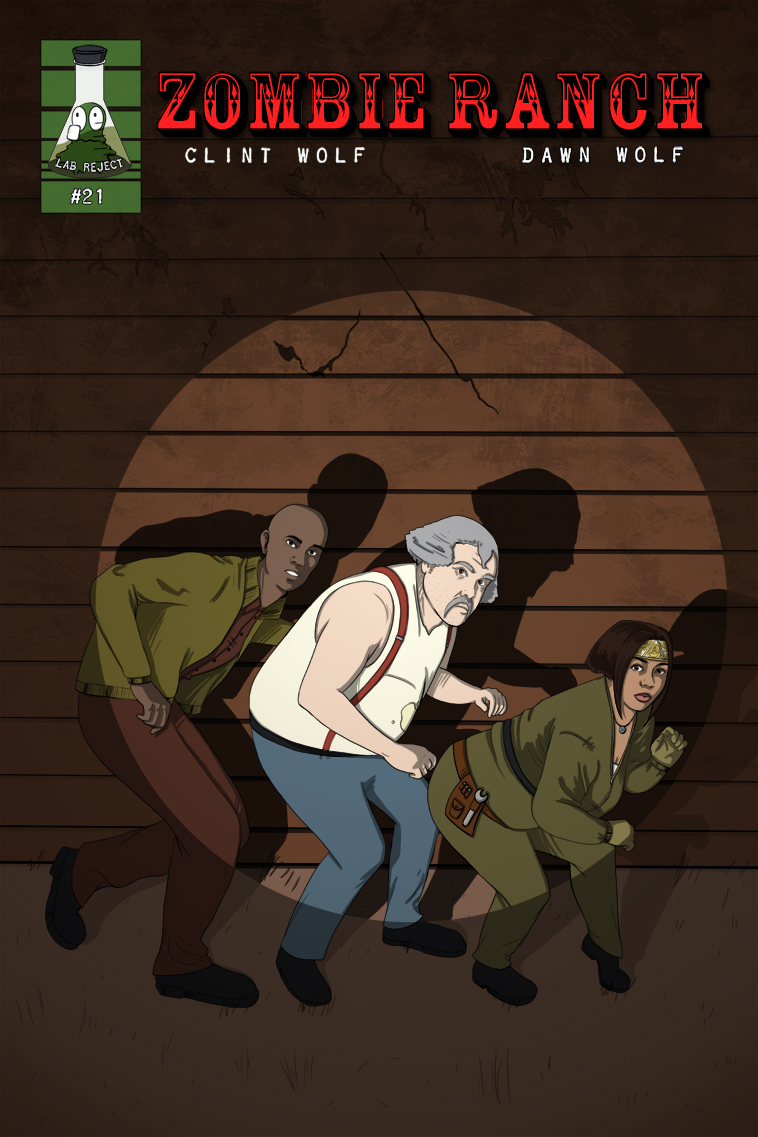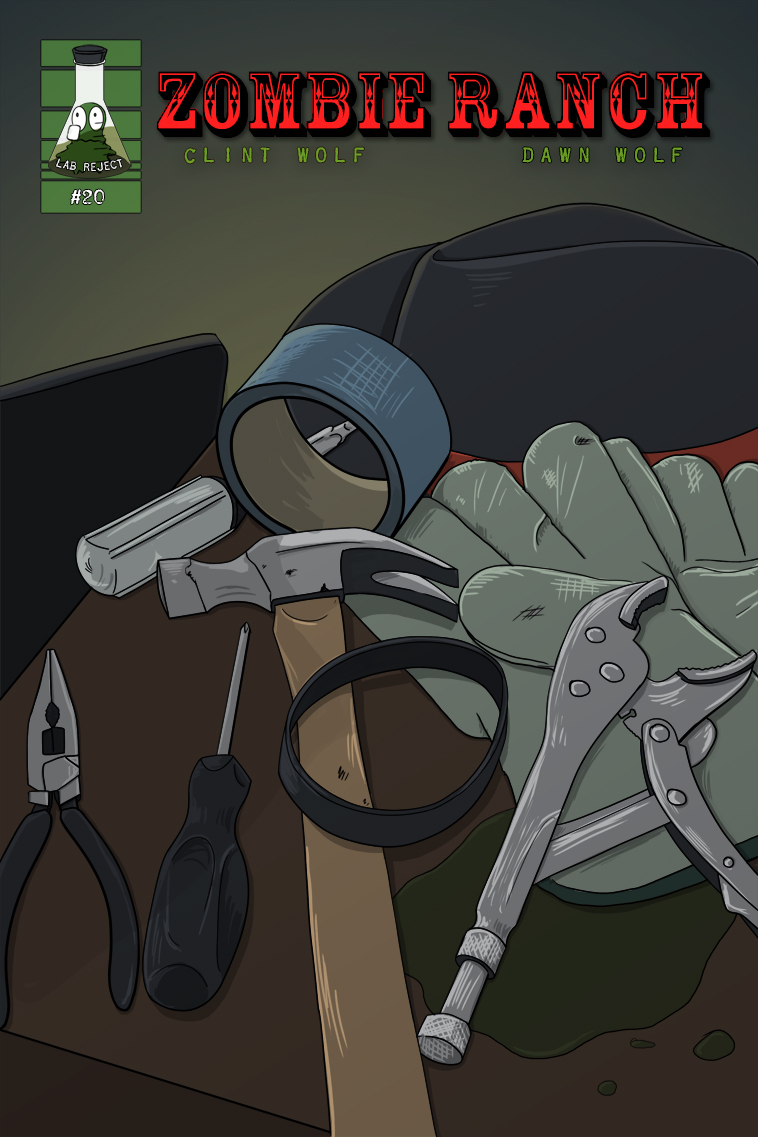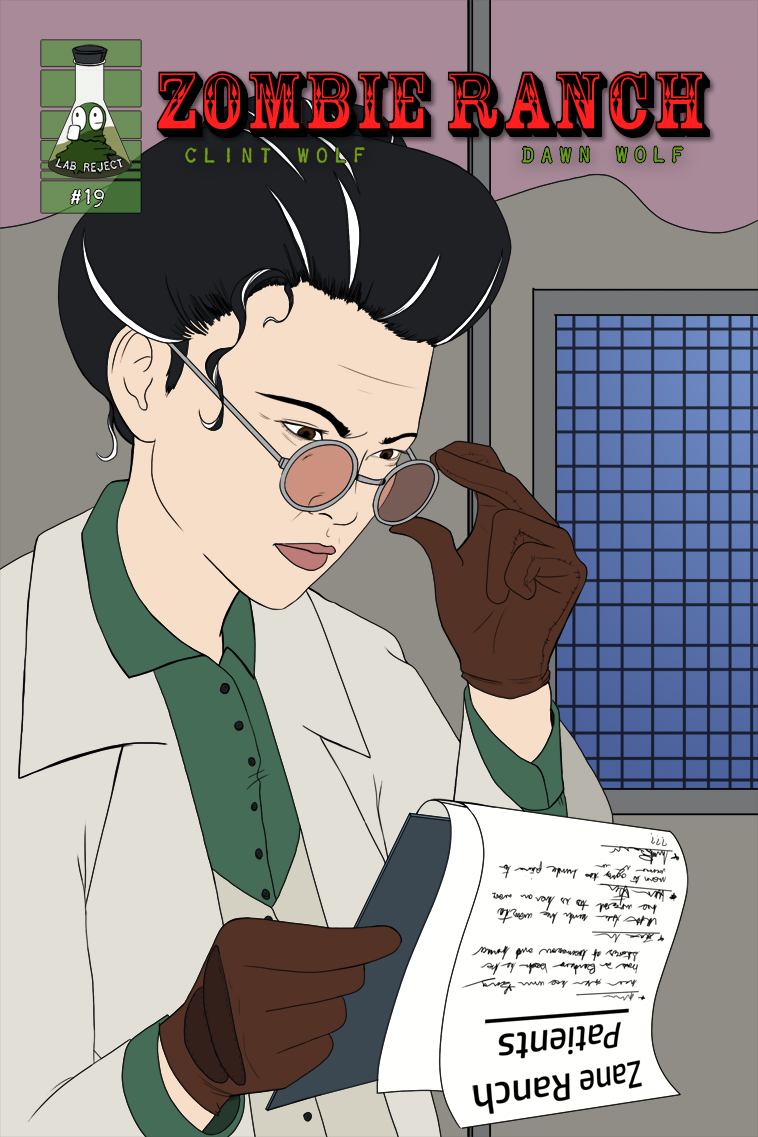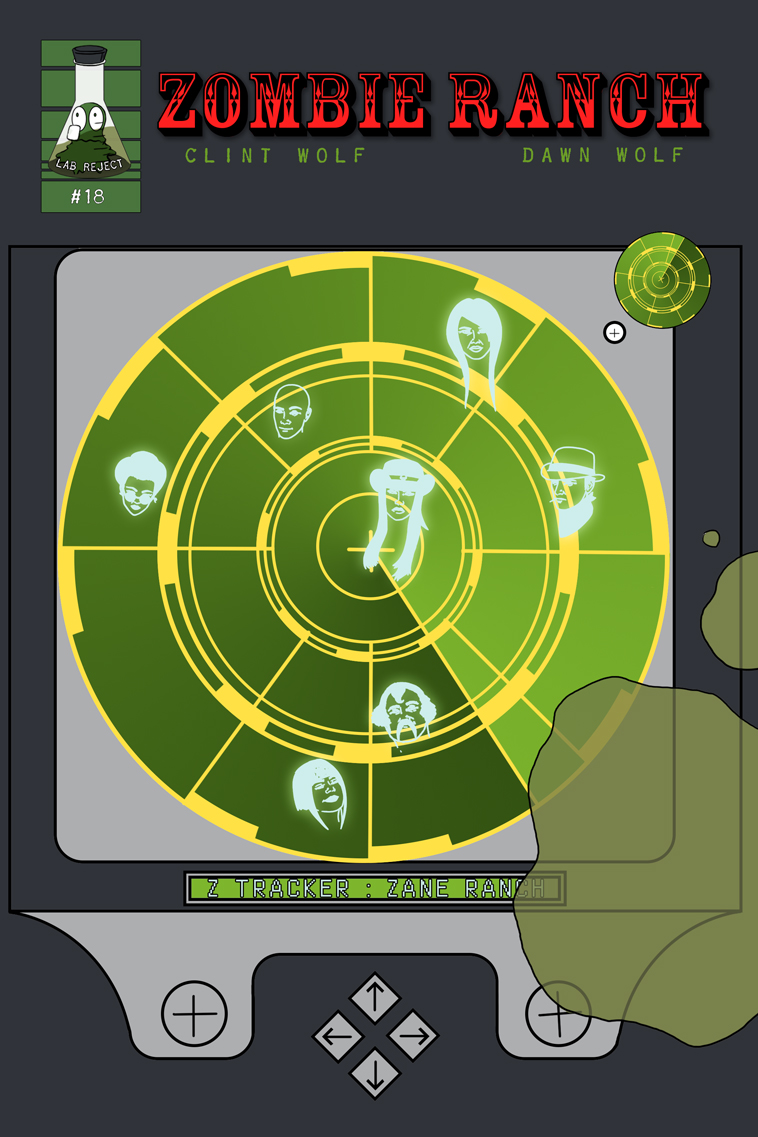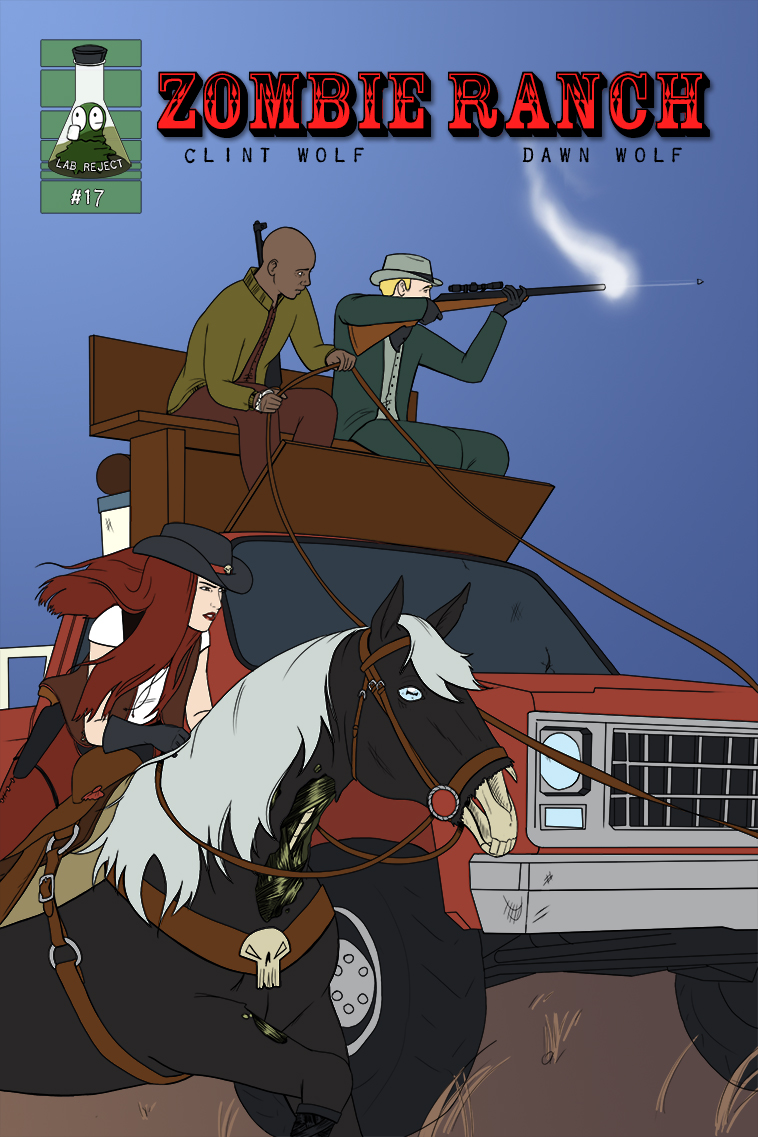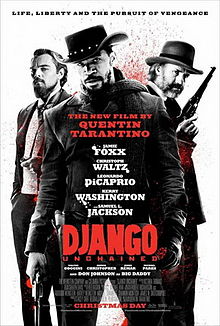 So I have a confession to make, and that’s that I was not exactly champing at the bit to see Django Unchained. Yes, despite Quentin Tarantino’s name attached (and actually directing rather than simply producing). Despite it being a modern homage to the Spaghetti Westerns of yore, with the added twist of bringing a Deep South setting and the spectre of slavery into the mix, letting a black man play the part of the wronged hero with a pressing need to kill all the bastards that crossed him up in the past.
It’s a compelling concept, but with ticket prices what they are these days I don’t get motivated to the theater for much of anything, which often means I’m months or even years behind the times as I wait for cable or Netflix to queue up something I was interested in… but not necessarily $12+ interested in. Well, courtesy of a friend springing for the ticket price, Dawn and I were recently able to check it out.
Now it always helps with my mood for films when I have no cash on the line, which is the secret of how I was able to stand sitting through Star Wars Episode II and III (my parents made them family outings). I paid for Phantom Menace, but at that time, who knew better? Plus I may or may not have been stoned out of my mind to the point my critical faculties were reduced to around those of an easily pleased 5 year old. I approached Django Unchained without high expectations. Partly because Tarantino’s last offering, Inglorious Basterds, was a bit of a muddle for me, and partly because of the original namesake casting its shadow. I rented the 1966 Django and found it a chore to get through because on the one hand it was trashy and over-the-top, and on the other hand it seemed to want to take itself so, so seriously. This is a mix that doesn’t make much sense when your hero hauls around a full-size coffin everywhere, and that coffin then turns out to contain a gatling gun which he proceeds to fire from the hip, no problem. Should be awesome; and yet somehow, just ended up being annoying.
I don’t know, maybe I would have enjoyed it more had I not been stone cold sober. Maybe Sergio Leone has me spoiled, because he takes the same sort of situations and stylistic touches and makes authentic cinematic art out of them, and Sergio Corbucci felt like a pale imitation. All the sound and fury with none of the thought or skill. It’s the difference between watching Die Hard and watching Transformers.
But you know, considering that Django Unchained’s story and characters have jack all to do with Django (beyond the name and a subtle cameo by the original’s star Franco Nero), that part of things ended up being a non-issue. Django Unchained is its own beast, for sure.
And for about 90% or so of its runtime, by golly, it’s a handsome beast. I was pleasantly surprised at how well everything flowed and made good, entertaining sense, and how Tarantino wasn’t even afraid to inject a little outright levity here and there to prevent the proceedings from weighing down with too much seriousness. I refer particularly to a scene involving a proto-Ku Klux Klan bitching about their headwear, which Dawn very correctly named “the Blazing Saddles interlude”. Present and accounted for was that tightrope balance between the dramatic and absurd that marks out Tarantino’s best work, and there’s some wonderfully entertaining performances by the actors, particularly Samuel L. Jackson stepping far out from how you’d usually see him.
Sadly, for me at least, it falls apart right at the end. I probably shouldn’t get spoilery, but let’s just say there seems to be about 20 minutes of afterthought and a secondary climax that I felt didn’t need to be there, and the movie strains its credulity at the seams to make it happen. It’s like Tarantino suddenly woke up in the middle of the night in a cold sweat, shouting “Wait! If we end here my title character doesn’t get to display his true independence!”—which I agree could be a sticking point, but disagree on how it was handled. The very ending comes off as making more sense as some imaginary fever dream, “Occurrence at Owl Creek Bridge”-style, on the part of Django, than anything actually happening in the established reality.
And I doubt that was Tarantino’s intent, but there you are. He got famous for his non-sequential storytelling, pulling off some great tricks with it… but then when he tries to write something that just carries straightforward from point A to point B, I feel like he can run into problems.
All this doesn’t make Django Unchained a bad movie; hell, I hate the ending of Chinatown too, not because the bad guys win but because they win in a way that completely depends on Jake engaging in sudden, inexplicably moronic behavior. Chinatown is still worth watching, it just will never make my list of all-time greats. Similarly, in hindsight I would happily say Django Unchained would have been worth the price of admission, and it’s great to see a western do so well both critically and commercially (hopefully not just because Q.T.’s name is on it), but it failed in one crucial aspect for me. The Ars Terminus—the Art of Ending, on the perfect note, at the perfect moment that brings everything home.
Which may be waaaay too nitpicky a point to bring up on a movie based in Spaghetti Westerns, but Leone was really good at making it happen. A little more Leone and a little less Corbucci is always worth striving for.
So I have a confession to make, and that’s that I was not exactly champing at the bit to see Django Unchained. Yes, despite Quentin Tarantino’s name attached (and actually directing rather than simply producing). Despite it being a modern homage to the Spaghetti Westerns of yore, with the added twist of bringing a Deep South setting and the spectre of slavery into the mix, letting a black man play the part of the wronged hero with a pressing need to kill all the bastards that crossed him up in the past.
It’s a compelling concept, but with ticket prices what they are these days I don’t get motivated to the theater for much of anything, which often means I’m months or even years behind the times as I wait for cable or Netflix to queue up something I was interested in… but not necessarily $12+ interested in. Well, courtesy of a friend springing for the ticket price, Dawn and I were recently able to check it out.
Now it always helps with my mood for films when I have no cash on the line, which is the secret of how I was able to stand sitting through Star Wars Episode II and III (my parents made them family outings). I paid for Phantom Menace, but at that time, who knew better? Plus I may or may not have been stoned out of my mind to the point my critical faculties were reduced to around those of an easily pleased 5 year old. I approached Django Unchained without high expectations. Partly because Tarantino’s last offering, Inglorious Basterds, was a bit of a muddle for me, and partly because of the original namesake casting its shadow. I rented the 1966 Django and found it a chore to get through because on the one hand it was trashy and over-the-top, and on the other hand it seemed to want to take itself so, so seriously. This is a mix that doesn’t make much sense when your hero hauls around a full-size coffin everywhere, and that coffin then turns out to contain a gatling gun which he proceeds to fire from the hip, no problem. Should be awesome; and yet somehow, just ended up being annoying.
I don’t know, maybe I would have enjoyed it more had I not been stone cold sober. Maybe Sergio Leone has me spoiled, because he takes the same sort of situations and stylistic touches and makes authentic cinematic art out of them, and Sergio Corbucci felt like a pale imitation. All the sound and fury with none of the thought or skill. It’s the difference between watching Die Hard and watching Transformers.
But you know, considering that Django Unchained’s story and characters have jack all to do with Django (beyond the name and a subtle cameo by the original’s star Franco Nero), that part of things ended up being a non-issue. Django Unchained is its own beast, for sure.
And for about 90% or so of its runtime, by golly, it’s a handsome beast. I was pleasantly surprised at how well everything flowed and made good, entertaining sense, and how Tarantino wasn’t even afraid to inject a little outright levity here and there to prevent the proceedings from weighing down with too much seriousness. I refer particularly to a scene involving a proto-Ku Klux Klan bitching about their headwear, which Dawn very correctly named “the Blazing Saddles interlude”. Present and accounted for was that tightrope balance between the dramatic and absurd that marks out Tarantino’s best work, and there’s some wonderfully entertaining performances by the actors, particularly Samuel L. Jackson stepping far out from how you’d usually see him.
Sadly, for me at least, it falls apart right at the end. I probably shouldn’t get spoilery, but let’s just say there seems to be about 20 minutes of afterthought and a secondary climax that I felt didn’t need to be there, and the movie strains its credulity at the seams to make it happen. It’s like Tarantino suddenly woke up in the middle of the night in a cold sweat, shouting “Wait! If we end here my title character doesn’t get to display his true independence!”—which I agree could be a sticking point, but disagree on how it was handled. The very ending comes off as making more sense as some imaginary fever dream, “Occurrence at Owl Creek Bridge”-style, on the part of Django, than anything actually happening in the established reality.
And I doubt that was Tarantino’s intent, but there you are. He got famous for his non-sequential storytelling, pulling off some great tricks with it… but then when he tries to write something that just carries straightforward from point A to point B, I feel like he can run into problems.
All this doesn’t make Django Unchained a bad movie; hell, I hate the ending of Chinatown too, not because the bad guys win but because they win in a way that completely depends on Jake engaging in sudden, inexplicably moronic behavior. Chinatown is still worth watching, it just will never make my list of all-time greats. Similarly, in hindsight I would happily say Django Unchained would have been worth the price of admission, and it’s great to see a western do so well both critically and commercially (hopefully not just because Q.T.’s name is on it), but it failed in one crucial aspect for me. The Ars Terminus—the Art of Ending, on the perfect note, at the perfect moment that brings everything home.
Which may be waaaay too nitpicky a point to bring up on a movie based in Spaghetti Westerns, but Leone was really good at making it happen. A little more Leone and a little less Corbucci is always worth striving for.
How 'bout them spook stories now, Chuck?










